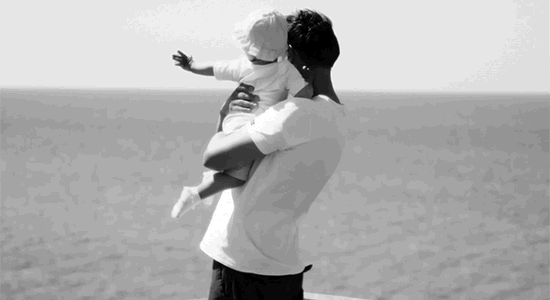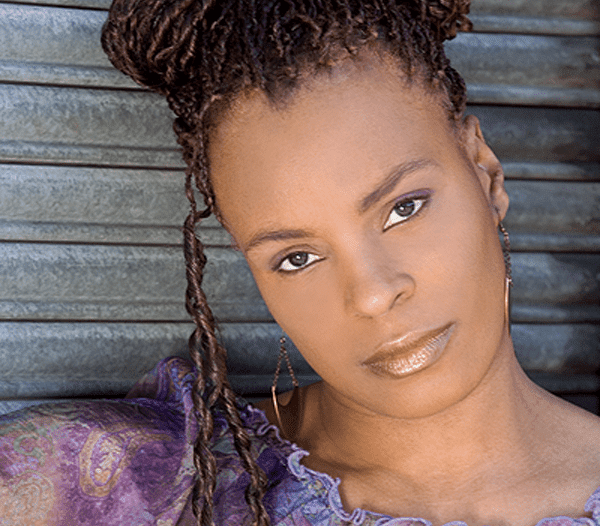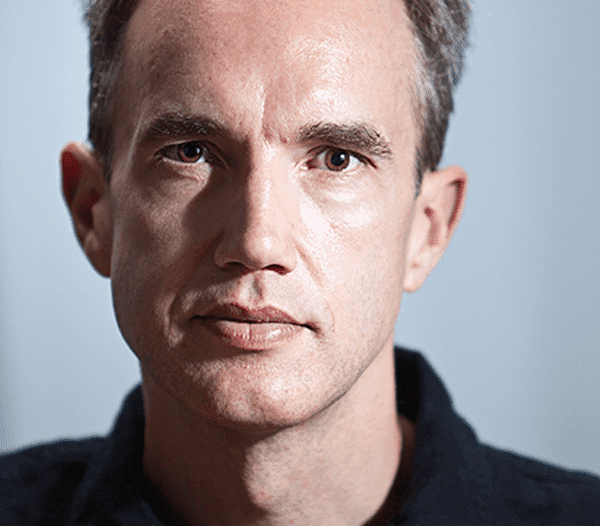I dig a hole in the backyard. Grass stains my hands as I bury all my simple treasures; words and ribbons and bones. I pray that you won’t find them as I wait for night to fall so I can dig them out frantically, lay them out one by one to admire with fervent joy. I wait for you as the sun rises, hiding my hands—mud covered, sitting, fetching, adoring you all for a simple pat on the head. Loyal, they call me, devoted, they call me but they don’t really know the truth: The chain you’ve wrapped around my neck and yank when I don’t follow command. To play dead, if only for that luxury, to bury myself within my treasures the secrets I hold to keep me sane and prevent my mouth from frothing white. But to ignore your demands would only be futile, to bite or growl or bare my teeth would bring me to the sterile cold metal table where a single needle would do the job. I grow tired and wearisome, old and haggard from sitting pretty for treats. you replace me before I’m even gone, a pretty new pup with a silken bow. Your eyes light up when she is near and I am just the background, the comfort, the usual. I’m the hair on the couch and the piss on the floor, though I still try to please, I’m long forgotten. Already dead. You’ll bury me in a cardboard box with a nearby stick to mark my place. I will fade away with the autumn wind, only to be remembered by the stains on the carpet.
Shorthand
Father
I’ll mold my life after yours I swear. I promise to always love my children. Teach them to love me, like I will endlessly love you. I might have my Mother’s temper. But I blame resilience on my Father. He taught me to never settle down. Settle up. Because no matter the weather, you know there’s always a bright side. Quitters may never win. But men with hearts never lose. So chin up slugger, The bases are loaded. Don’t be anything less than incredible. Be someone’s worthwhile, the index of a book, remembered.
Spoken Word
I want you to do a free writing exercise—I’m going to say the word Voice and I want you to write down whatever comes to mind be it a word, a series of words, phrases or sentences. I want you to write down 8-12 different things.
Okay, now I want you to take those free random thoughts and turn them into 6 lines of poetry with the theme of Voice. It can be about your voice, things you’d like to say, your vocal quality, things you wish you could say, or it can be about the voice of someone you know well, or it can even be about what the voice you hear in your head, your thoughts that lead to your actions.
These 6 lines of poetry do not have to rhyme they can be blank verse, or for now they can even be a sentence.
Now I want you to look at the 6 lines you’ve written as well as the words or phrases you wrote in the free writing exercise and turn that into 6 lines of poetry that rhyme.
I do variations of this type of writing exercise in almost every workshop from grade 3 students to grade 12 and it always works.
Words
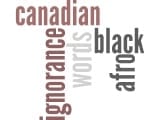
Words, words, words are so important, and words are my tool Words are how I express myself Don’t be mistaken by angry words, for anger is a result of oppression Don’t take my words as words of protest, just take them, listen to them, work with them I have a right to use my words, for I live here, grew up here, since the age of 4 No one can understand my pain unless you’ve grown up in my shoes All too often I’ve been hurt by words of ignorance “The N Word”—ignorance You’re not Black you don’t act Black—ignorance I’m not prejudice I have a black friend—ignorance Ignorance all ignorance If there is to be a solution to the problem we must work together, we must use words We can no longer remain oblivious to what surrounds us; racism, the system I work with children and it hurts me when I ask them questions about their identity and they know nothing It hurts me when I say to a child—What does it mean to be Black? Response—to be Black is to be “The N Word” Words, words, words, the wrong words coming from our youth We must take away this negativity and replace it with positivity and the truth We must teach children to use words like Afro Canadian I attend Dalhousie University, I went through the Transition Year Program and I’m proud of it I love myself and my people and it’s evident Every day I look for myself in hospitals, on campus, in books, in the plays we read in class I don’t see myself Every day I hear my white friends talk in a Black lingo and I think that’s not how I talk Don’t they realize they are hurting me? My hurt runs deep, my hurt is my history Words, I will use my words Someday I will direct and write plays and use my words about my people Words, words words are so important and words are my tool Words are how I express myself Don’t mistake my words of anger for anger is a sign of oppression Don’t take my words as words of protest, just take them, listen to them work with them.
I wrote this poem when I was 22 years-old for the Dalhousie Student Newspaper.
Untitled
Sitting here I’m feeling low I cannot tell you why For all I ever wanted was to meet the right guy I’ve met him now and though I’m happy it’s just as I had feared He loves me and I love him too, but I’m feeling very scared I hope one day I’ll find myself and come to terms with how I feel Right now my fear of losing him is really quite unreal He’s not like the guys I met before so why do I feel this way That’s a question I constantly ask myself and in response I always say . . . I’m scared
This poem was written when I was 17 years old.
Going back and reading these poems has me smiling, I have another poem I wrote in high school called “My Heart is Like a Football Waiting to be Kicked!” I apparently had a flair for the romantically tragic and dramatic poem. The other thing that is evident looking back is that my culture has always been important to me. It’s who I am really, how I was raised and the things that I have been through that have shaped me as a writer and an artist. I have a lot of children’s plays here including my very first full script I wrote for Active Youth called “Cindy’s Shoe” a modern take on Cinderella, and “An Adventure Under the Sea.” I am in the process now of re-writing all of these scripts into word documents (they were written in the 80s) and submitting them to the Playwrights Guild play catalogue.
Author of the Month: Anne-Marie Woods
Tell us about yourself.
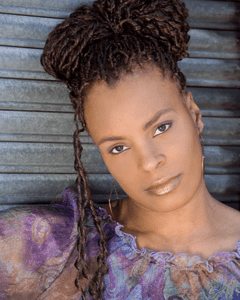
My name is Anne-Marie Woods aka Amani. Amani is my spoken word performance name and it’s a combination of my birth name Anne-Marie and my company name Imani. Amani means peace in Swahili. I have always loved to write and started writing letters to my Godmother who raised me till I was 4 years old at the age of 5. I was always one of the top readers in school from primary grades onward, so I think that my love for language, words and expression started in elementary school. I can remember this amazing book that I had called Young Years, it had fables, nursery rhymes, fairy tales and was a humungous book. I knew many of the stories and rhymes by heart. I also loved the library from the time I was 5 years old and could take books out on my sister’s card.
I describe myself as a shy extrovert. I can do almost anything onstage performance wise and I love speaking and teaching theatre and literacy workshops to young people. But, when it comes to going to banquets or attending networking events, I’m not always as comfortable with the one-on-one conversation with strangers, especially industry strangers. There are people that find this hard to believe, but I think a lot of artists feel this way. I was born in England in East Hackney, and then baptized in Trinidad, West Indies and then at the age of 4 my family moved to Nova Scotia. I am so glad that I grew up there; Nova Scotia has shaped and prepared me for the career that I have now. I am the type of person who doesn’t take no for an answer when I really want to do something or really believe in it. A few examples of this are the time I spent in Philadelphia at Freedom Theatre. I was running a cultural youth organization at the age of 27 and took a group of youth to Philadelphia, and Freedom Theatre ended up being one of our stops, but also a place that had a huge impact on me. I decided while visiting that I wanted to go back there. I asked them if they ever had interns from Canada, and they hadn’t but I went back to Nova Scotia and worked out a way to go back there and share in their Africentric theatrical experience. I wrote my first Canada Council Grant in 1996 to do a residency at the theatre and received it. I spent 9 months at Freedom and those 9 months changed my life considerably. I was challenged, because it was a different culture, I had to stand up for myself quite a bit (being the lady from Canada), and I actually cried a lot at night, but always went back down to the theatre smiling each day ready to face the challenges again. In the end, I made life long connections and learned that I don’t have to be afraid to try/do anything in life. I can’t say that I’m fearless but I will say that I can face my fears. I think if I’ve never faced my fears I would still be sitting in an apartment in Nova Scotia wishing I could do things.
Another story about my perseverance was when I ended up in the National Black Theatre Festival in 2001. I had a new one-woman comedy show called Waiting to Explode. I tried to get into the festival last minute in 1999 and no matter what tactics I tried, nothing worked, so I told them point blank: “That’s okay I will be in your festival in 2001!” I applied for the festival, they lost my application and I had to resend it, I called the office every single week, and then I moved to Toronto. In the summer of 2001, I got a call from Larry Leon Hamlin the festival Creative Director: “Miss Woods, this is Larry Leon Hamlin, I am calling to say that your show Waiting to Explode has been accepted into our festival, and you better be good too cause we bumped another show to let you in.” I was very calm when I talked to Mr. Hamlin but when I hung up the phone, I jumped and screamed and ran around my basement apartment. From that phone call, I decided I had to get publicity because I would be the first African Canadian featuring my play there, so I tried to reach people at CBC in Toronto, but couldn’t reach anyone. So I called CBC in Nova Scotia and asked them who they could connect me with in Toronto and they told me, Joan Melanson. I called Joan and sent her a press release, and from that phone call got a live interview on the air with Andy Barrie. Now, as I said before, I am not good with one-on-one interaction, so when Mr. Barrie came in to speak to me I didn’t say much, and I can remember kicking myself internally because I know I should have said more. I didn’t know this until later but he went back into the studio and asked if there might be a replacement for me as he thought I might be a dud. But when I got on the microphone to talk about my one-woman comedy and did each of the characters, my 2-minute interview stretched to 9 minutes, which is long on radio . . . and from that interview, I was offered a job on Metro Morning that I started in the year 2002. I have many stories like that with my career and there is so much you can do with writing. I happen to write and perform, but I have also written poems, and stories and plays and presentations for countless people, organizations and businesses at this point in my life. So, I would describe myself as a young woman with a dream who has lived many parts of that dream and now that I’m older I still believe in the dream, and I feel that the only obstacle that can hold me back from achieving things is me.
When did you realize you had a passion for writing?
I would say that I realized that I love writing or had a passion for it in grade school. I may not have understood my passion at that point, but because I loved reading so much esp. when I was younger, the Ramona book series, and then in grade 4 my sister gave me Judy Blume books. I wasn’t allowed to read some of the books until I got older, but I loved Tales of a Fourth Grade Nothing, Blubber and Are You There God it’s Me Margaret (unbelievable that I remember all these titles). I used to make up commercials with my sister Cherrie at home and say them into the tape recorder. I would also write poems and short stories for English class and I loved doing that as well. I was always making up these intricate scenarios and story lines for my Barbie collection. My imagination was definitely an active and non-traditional one. But that was often how I entertained myself. I can remember the books I read in English class as a child: Seven is Magic, The Dog Next Door. In grade five, because I was an above average reader, I got to read a special reader called Northern Lights. To me, reading, performing and writing are intertwined and it’s probably why I started out writing poetry and plays by the time I was in Junior High.
What pieces of writing/authors have had the greatest impact on you?
The pieces of writing/authors that had a great impact on me could take a while. My reading style in elementary school was very, how shall I say this, eclectic. I loved Beverley Clearly books: Ramona the Pest, Ramona the Brave, etc, and reading about Ramona and Beevus. I enjoyed these books because I was often in trouble myself and just enjoyed the characters. I was reading Ramona books in grade 2. I also loved to read the Tin Tin cartoon and by grade 4, I had launched into the Judy Blume phase of my life, and though I wasn’t allowed to read some of her books till I was older; I read them anyway. I read Deenie when I was in grade 5.
There was a poem we learned in school that I saw on the TTC Poetry Series, it was called Annie, I believe. I read this poem in grade 7 English class and it just had a huge impact on me because it’s so true when it comes to life and what’s funny is at the time I didn’t know who Leonard Cohen was and learned that he wrote this poem the year when I saw it on the subway.
Annie
With Annie gone,
whose eyes to compare
with the morning sun?Not that I did compare,
But I do compare
Now that she’s gone.
—Leonard Cohen
Something in this poem struck a strong chord with me, so much so that I remembered it all of my life. As a matter of fact, when I saw it on the TTC a few years back, I nearly jumped up and yelled: “Hey everyone, that’s that poem, that poem, you know, the one from school!”
Then there was the influence of my brother David Woods who is a writer and a visual artist. He was always at home locked in his room reading and writing. He used to have this gigantic book that was more intricate than a regular dictionary and when I was younger he’d call me into his room, hand me the big book and say, “pick me up words.” Which meant pick any word at random and then he would tell me the definition. I thought my brother was brilliant and amazing. He started writing plays and poems when I was quite young, but I especially remember his work when I was a teenager because he started a theatre company called Voices. He would take me to all of his rehearsals and I was so moved by this experience. He also gave me the book For Colored Girls Who Considered Suicide When the Rainbow is Enuf when I was in Junior High—this book was described as a choreopoem by Ntozake Shange. When he gave me this book, I think I was in grade 8. I loved it, I loved the flow of the words, the characters and the stories, I’d never read anything like this before and there was something about the spirit of the writing that vibrated through me. A great story about this book is that I received it in grade 8, and later the book showed up again when I was in a reading of its script in the late 80s. I also saw it onstage in Nova Scotia at the Cunard Street Theatre. But, even more amazing is that Ntozake has passed through my life on more than one occasion. Imagine me as a teenager reading her story, not even knowing what that would mean in my life . . . but she plays a role in my life thanks to my brother. When I was in theatre school, we had to do monologues in class and then turn them into movement/dance pieces for an in-class presentation and I chose lady in brown. I loved that monologue: “dark phases of womanhood of having never been a girl half-notes scattered without rhythm/no tune . . . ”
I remember doing my dance piece and interpreting the words in the poetic monologue into movement, it’s one of my fondest memories of my time in the Dalhousie Theatre Program. But, in 1997 I met Ntozake Shange during my 9 month residency at Freedom Theatre. Her daughter was in the stage production of Cooley High that I was working on, and so when we had the wrap party, Ntozake was there. Words can’t describe what it’s like to see an author in front of you whom you’ve read when you were a teenager and never thought you would meet, but there she was at our party. She was very colorful, and I know I have a picture of and with her in one of my albums; I was too spellbound to speak. But, I was too spellbound to speak, even though I did get a picture with her, I couldn’t tell her how much she influenced me. But God has a way of working because in 2001, I met her again. The National Black Theatre Festival that I performed in, well, Ntozake was on the same panel as me (crazy isn’t it?) . . . There I was, little old Anne-Marie from Nova Scotia sitting on an International Colloquium about Black Theatre in North America. And sitting right beside me was Ntozake Shange; this time I told her what her work meant to me. I knew in advance she would be at the festival, so this time I remembered to walk with my book, but of course I forgot it on panel day. But at the airport on the day I was leaving Winston Salem, I saw her in the airport in a line and ran up to her with my book For Colored Girls and asked her to sign it and she signed it “Keep Writin Ntozake Shange 2001.” Talk about a full circle moment!
How and when do you find time to write?
Finding time to write is sort of a funny question because finding the time to write this was a bit difficult because I am in the middle of preparing a lot of presentations and producing a youth production. However, I knew this was important so I am taking the time in the early mornings to answer these questions.
I write when the feeling hits me and that can be anywhere, on a bus, subway, in the middle of a presentation (that takes a bit of maneuvering ahahahaha). Sometimes it’s difficult, I have a very busy schedule where much of my time is taken up with admin work; grant writing, invoices, contracts, preparing literacy outlines and curriculums for schools. But, I just find the time or write when a feeling hits or an idea hits. I don’t write every day or practice writing every day like a lot of writers say they do. I’ve never done that, and I think I’ll be okay. However, I do really want to get published, at this point I have countless plays and endless poems and short stories and I really do have to compile these and get thee to a publisher!
Sometimes I have to write as part of a job, so then there’s no choice, you just make time. I worked at CBC radio for a few years and I had to turn news and current affairs into poetic rants, songs, raps and commentaries for the radio. My turn around time was often one day—get the story and then perform live on the air at about 6 am or so every day. What working at CBC radio did for me though, was it not only gave me the discipline to write and create under pressure but it helped me with one of the skills I always possessed but is now much stronger: writing about anything on any topic within a short period of time. I now use that skill to create signature pieces for organizations or big events. I just wrote a signature poem for the Ontario Black History Society called “Reflections” and performed it on Sunday. The thing is I wanted to write it before Sunday but I was in a big spoken word show “When Sisters Speak” and was busy preparing and writing for that show, so on Sunday morning before the OBHS event there I was conducting research and putting my thoughts and the outline they sent me into poetic form.
So I guess the answer to this is that I make time, I am able to write under pressure or for a deadline, but I also write when the feeling hits me. I also sometimes write out of the pure anger and frustration of being a self-employed artist. My one-woman show True Confessions of a Single Woman While Waiting for her Big Break the off offoffoffoffoffoffoffoffoff Broadway Musical, was written in one day out of the sheer frustration of not being able to get work. I just did a reading of that play in Nova Scotia in October, but wrote it in 2003 or so and performed it at a theatre festival at the Atlantic Fringe.
What has been some of the biggest challenges you’ve faced as a writer?
My biggest challenge as a writer is that I want to be published more than I am. I have a story about my life (very similar to this article I’m writing now) in an anthology called And I Will Paint The Sky by Carole Trainor and published by Pottersfield Press (ironically Pottersfield Press is run by Lesley Choyce who published my brother’s first book of poetry and he was also my English professor in university). I also have had poetry published in a magazine in Trinidad, as well as a travel column that I wrote for Sway Magazine online, and I am a member of SOCAN and have had songs published on recordings and my Spoken Word CD is part of the Archives of Canada. I love all of that, but I really want to get my children’s books, poetry books and plays published. The challenge is that being self-employed, the time to really put these manuscripts together is difficult. I actually tried to apply for a fellowship grant this year so I could go back to Trinidad and spend time immersing myself in the oral traditions there and take the time to write and put my poems together to create my first book of poems. I didn’t receive the grant and now I am just thinking I am going to have to complete at least one manuscript this year. So, that is my challenge. Because I have to pay the bills somehow, and I do youth outreach work, teach literacy workshops, write poems for other people, and spend 50% of my time doing admin work so I can get work, that professional development of “let’s sit down and put a manuscript together time” just isn’t there. However, I am making it a priority for this year and next year. So, it will happen! I am determined!
How have you changed as a writer over the years?
My writing over the years has changed and I find myself actually wanting to write more and am even looking at doing my masters in creative writing. What’s funny is my degree is in theatre, but because of the type of work and projects I’ve been involved with since I was in my 20s, people often think my degree is in English, Creative Writing or Education. I feel that through my experience I have earned a very non-traditional education with honorary degrees in all of those subjects.
My ability to write my artivational speeches, poems, short stories, anecdotes and plays are still a huge part of my life, my existence, but what has changed is that over the years, my writing is really becoming more personal, more reflective.
When I was younger my poems seemed to be about love and heartache and about my culture which is very important to me, but boy, I have a lot of Black and Proud titled poems. I think that for me, writing has always been a response to personal or societal stimulants.
Finally, I just want to say to the young writers out there to keep on writing, there are so many resources available to you now that didn’t exist when I was younger; utilize them. I also want to say it’s okay to dream and it’s okay to love writing, there are endless possibilities of what you can do with your writing. And finally, please don’t ever let anyone hold you back or stop you from using your words!
Check out my artist website www.imaniartsbiz.com for more information.
Emerging Author of the Month: David Cozac
Tell us about yourself.

I was born and raised in Toronto, and studied English Literature at the University of Windsor (B.A.) and Queen’s University (M.A.). I have long loved reading and books, so perhaps it was inevitable that I would eventually get around to writing one of my own. Professionally, my career has centred on human rights communications and program management, both in Canada and overseas.
Tell us about the piece you’ve decided to share.
This is an excerpt from Finishing the Road. Set in Guatemala in 1991, while the country’s civil war still continues, the novel tells three stories of individuals who’ve travelled through the country searching for and contemplating family, identity and belonging in a world in which they have come to feel estranged. One of the protagonists, a woman named Claire who is part Belgian and part Guatemalan (due to a fleeting affair that her mother had while travelling in Guatemala) travels to the country to meet the father she never met (but whom she had recently spoken to by telephone). However, he is murdered before she has an opportunity to see him in person. She chooses to remain in the country, travelling to several places in the country that had particular meaning for him and that he had told her to visit. She does so, writing personal, impressionistic accounts for an English-language newspaper in the country, using the motif of the rare and beautiful quetzal, the national bird of Guatemala. In travelling to, writing about and experiencing these places first-hand, Claire hopes to learn more not just about her biological father but also about her Guatemalan half.
One of the other main characters in Finishing the Road is a Torontonian, Marc, who is in Guatemala to study Spanish. When he accidentally comes across the first newspaper article by Claire, he is instantly drawn to her and impetuously decides to embark upon his own journey in Guatemala, letting her words be the guide, tracing her steps through every article that she writes. His is in a quest—unwittingly led by her—done in the hope of stepping into his own life and grounding his drifting soul, one that has never felt rooted in his hometown.
The excerpt is an article by Claire about one of those places where she travels: a remote Mayan village called Lancetillo.
When and why did you realize you had a passion for writing?
As mentioned, I have enjoyed reading for a long time. However, it was only after I had returned to Canada in 2000, after having lived and worked in Guatemala for a couple of years, that the need to write came to the fore. I came back armed with so many experiences and memories from my time there that I felt the need to channel them. So, I eventually decided to write a novel, which, while a work of fiction, does contain some elements based on people I know, stories I heard and places I visited.
What pieces of writing/authors have had the greatest impact on you?
I have been lucky enough to read a wide range of great literature by writers from around the world. If I were to select certain writers whose work has had a significant impact on me (and my writing), I would point to Jim Harrison, Cormac McCarthy and Gabriel García Márquez. With Harrison, he is simply an incredible storyteller with a gigantic heart and unyielding love for the world. McCarthy is a master of language and scenery. My single favourite novel is One Hundred Years of Solitude, which was my introduction to García Márquez.
What kind of writer do you aspire to be?
I suppose that I aspire to be a writer who is faithful to his vision and who writes with passion and conviction about it.
How and when do you find time to write?
I have to make time to write; otherwise, it won’t get done. For example, when I beganFinishing the Road a couple of years ago, I found that I was not making much progress. It was particularly difficult because I had a full-time job. Being at home was also a distraction, given the easy access to the Internet, television, etc. So, I joined the Toronto Writers’ Centre and went there every Saturday and Sunday over the course of almost a year. The TWC provided an ideal, distraction-free quiet space in which I managed to complete my manuscript. It involved a great deal of discipline on my part; however, because I was determined to complete the novel, I made the effort to spend weekends at the centre.


